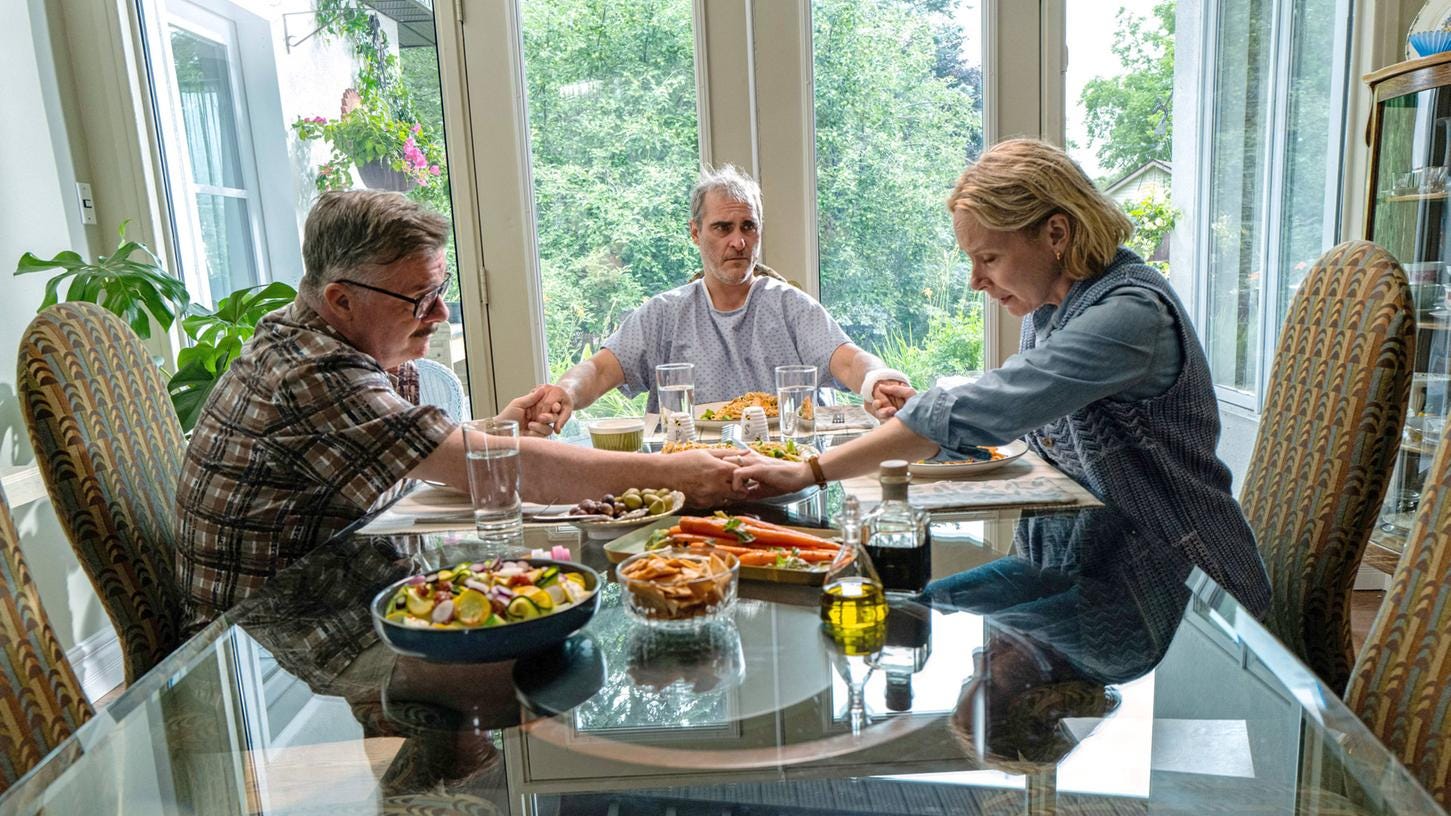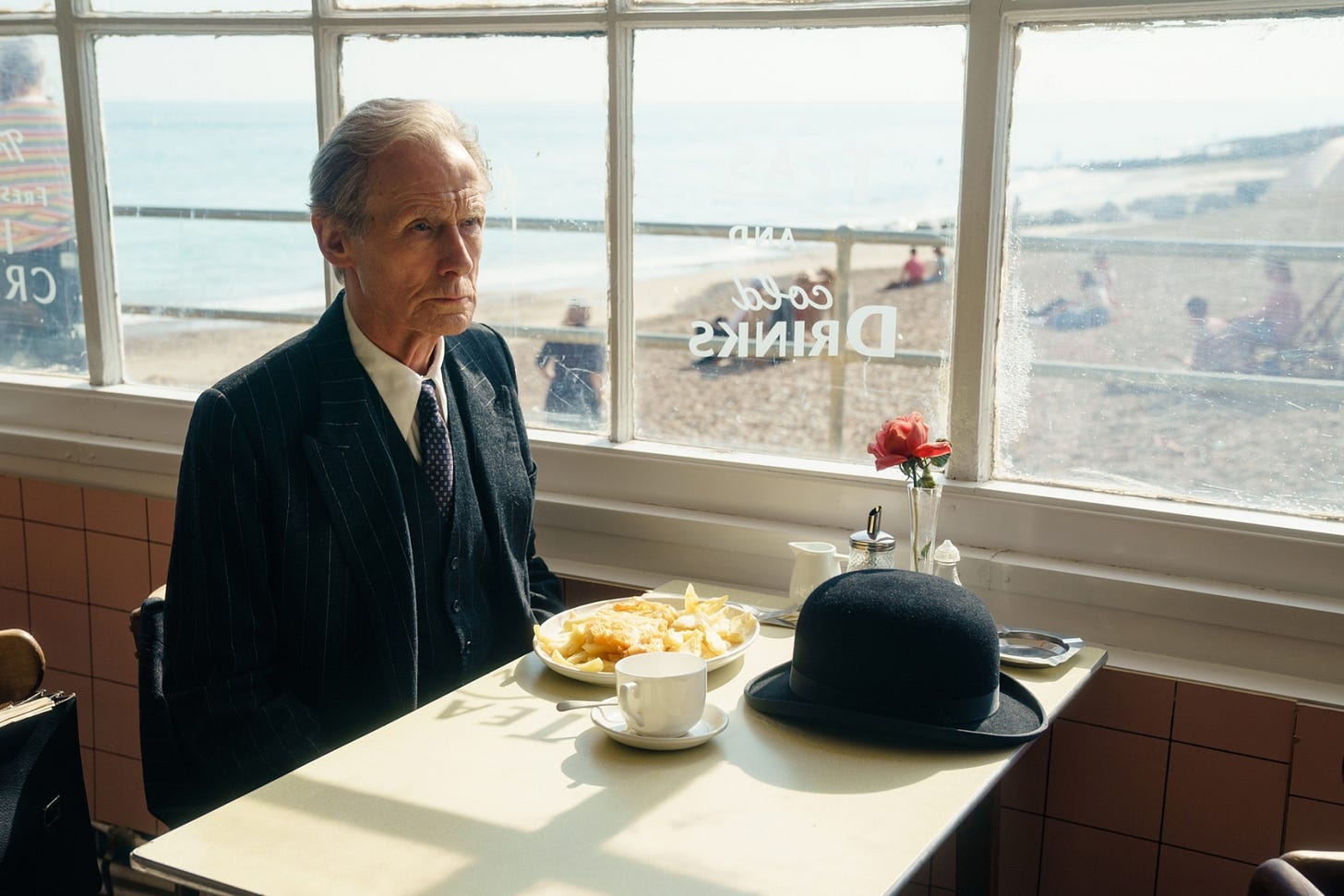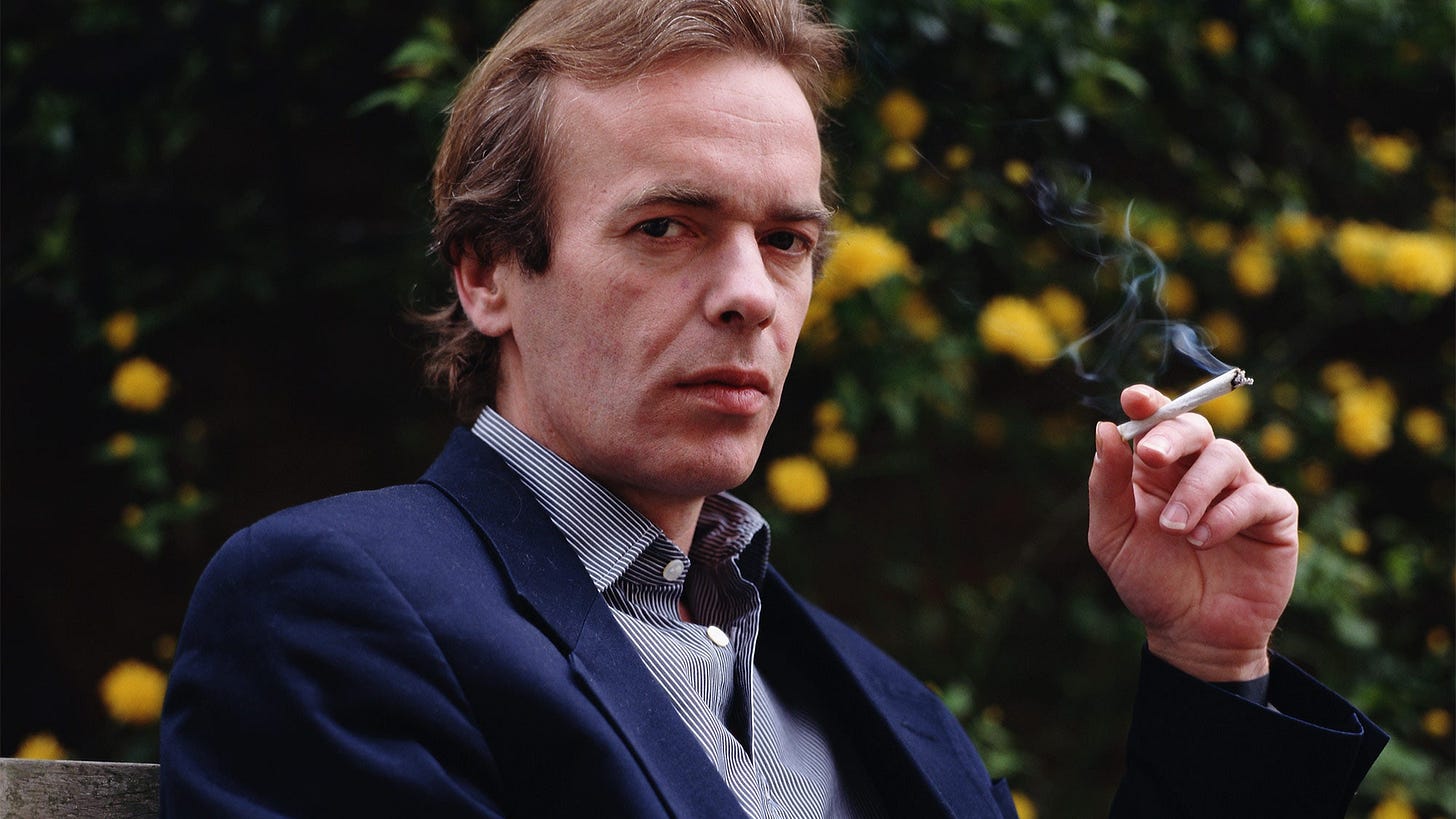Beau is Afraid of the Weather, Weekly Reel #52
A contemplative grouping of subconscious nightmare exploration, unexplored melancholy, and splitting the difference between home, work, and family.
News of the Week: Summer has arrived. I’m not sure how many blockbusters I’ll get to while the weather is nice. I’ll be covering the Munich Film Festival in two weeks but will have another WR out after this and before that.
Watch Now
Beau is Afraid (2023, Ari Aster, USA)
Since the nineteen-seventies, anxiety management in the culture of narcissism has been an animating force within American society. After the retreat from the political communal into the private personal, children have been the victims at every iteration of micro-managing measures—stimulants marketed for the “emotionally unstable”—that ensured a pre-packaged existence like a safe, all-expenses paid retreat on a small island that separates all potential dangers from the nice families through armed guards, high-barbed walls, and corrupt government officials. (“Is Beau afraid? Of course not, that man there has a machine gun what can go wrong here?”) This ideal and its debates take place on the cultural level, but what about the victim?
Guilt and Humiliation are the dominant themes of Beau is Afraid, Ari Aster’s third feature, which he called a “Jewish Lord of the Rings…nightmare comedy,” and deals in family horror but through an extended Martin Amis-esque comedic journey. These themes form the clique of authoritative buzzwords used by our so-called postmodern parents (modernist parents used simple, terse commands) which forms a deadly cocktail when supplemented with Ritalin, Adderall, Strattera, Vyvanse, Concerta, or whatever other spiked jocundity the FDA gets legally bribed to approve. They’re the look-how-much-I’m-trying-to-protect-you-and-keep-you-safe parents. Although we don’t gleam many of the exact details about Beau’s exact condition until the final act of this 178-minute psycho-marathon, we immediately feel both the atmospheric and psychological reasons for why Beau is afraid.
Beau is Afraid is an epic of contemporary social ills that will age better in hindsight, considering the very contemporary nerve Aster is hitting (that others like to not mention, but we all know), which puts many off kilter. Urban violence of the kind that Europeans think is happening in Great American Cities; myth of the nuclear family; traveling theater troupe providing the audience with their own reality rather than art that reflects the world outside of the person; confrontation with Mother; and a public execution whose outcome was determined from the beginning. These are the divisions of the film, or rather, steps Beau needs to encounter via a series of boss battles to grow up in his late forties.
The most illustrative of these episodes is the nuclear family second act. After a long section of Beau (post-Oscar Joaquin Phoenix) trying to make it out of his hellscape city apartment, he’s struck by a bulky van driven by Grace (Michael Scott’s soulmate Amy Ryan), who happens to have a surgeon husband, Roger (Timon from The Lion King, Nathan Lane). Beau uses the room of their teenage daughter, Toni (Kylie Rogers), to recover. The unusually cheerful and highly artificial parents are offset by the performative nihilism of Toni, who steals pills without much parental consternation, and war-vet Jeeves (Perrier LaPadite of LaPadite ferme laitière Denis Ménochet), who’s riddled with superhuman PTSD after serving with the parent’s KIA’d son and now lives in a motorhome out back.
Here, Beau is given a chance to recover from his physical (but really psychological) wounds. The parents have an air of “everything’s fine” perfection around Beau, which directly opposes the constant anxiety-inducing lobs from mother that Beau has spent five decades suppressing. But the result is the same: the distinction between aloofness and oppression doesn’t matter when both are trying to protect a child from the supposed dangers of the outside world. Instead of resting with freshly opened wounds, Beau’s in heat to make it back to his mother’s place, which he learns is holding a funeral for her after a sudden chandelier incident. Again, like always, the lawyer shames him into going asap because the memorial service can’t take place without him. Beau can’t even recover from his flesh-mother.
Beau takes the figurative place of the fallen-soldier son, whose shrine overlooks the kitchen table and room is off-limits, even to the recently room-displaced daughter. But nothing can replace the son, much as the parents would like to try, and the neglect of their daughter and daily treatments of Jeeves (a funny counterpoint to Wodehouse’s extremely competent manservant) confirms the preliminary assessment that the perfect family is a myth held together through unacknowledged juxtapositions. Beau’s hallucination after entering this sanitized environment reveals a contemporary societal myopia that we can all relate to. One’s dream is another’s nightmare. At that point, there’s nothing left to do but force-feed to death on the myths and rituals of the modern family, such as, for instance, the dreaded colors of baby blue and baby pink. That combination begins at the peak of familial creation when the infant has yet to learn of life’s negative influences. Only precisely at that moment can Beau have his Kubrickian revelation of the Todorovian fantastic.
Whereas Hereditary and Midsommar are almost entirely devoid of horrific laughs, Aster pumps Beau is Afraid full of whatever laughing gas that made the joker question why everyone was so serious. At a certain point, laughing through intense recognition and affirmation is the only medicine here. In Hereditary, one can filmicly disassociate when Charlie’s head exited her body. Or because they’re a bunch of odd Swedes in Midsommar. Not so fast with Beau is Afraid—"oh, sorry, did you think you could leave?” is both our problem and Beau’s.
In A24’s most expensive film to date (thirty-five million USD), Aster’s direction and Pawel Pogorzelski cinematography imbues the atmosphere with a constant sense of dread through bright colors and soft edges. Phoenix’s hair has never felt so scorched-earth before. The star performance and standout (and soon-to-be future Oscar nominee) is mommy Patti LuPone, prolific stage Queen ready to spank all actors not pulling their own weight. She’s so incredible that maybe Beau was fucked from the beginning no matter what drug regimen he may have been on.
Beau is Afraid is playing in theaters.
Save for Later
Living (2022, Oliver Hermanus, UK) is the brisk 102-minute adaptation of Akira Kurosawa’s 143-minute Ikiru (1952), which was in turn adapting Tolstoy’s fifty-six page novella, The Death of Ivan Ilyich (1886). Each screenplay iteration (there are three other filmed adaptations between Ikiru and Living) moves further from the then newly religious-convertee Tolstoy, which is about a man awakening to a spiritual understanding of his existence prior to death. One may arrive at the same conclusion in the contemplative melancholy of the Kurosawa-Hermanus protagonists, but that’s not the intention.
In Living, Mr. Rodney Williams (Bill Nighy), a nineteen-fifties London-city bureaucrat, has spent his life becoming a proper gentleman. He took up a humble office job and worked with as few impediments as possible. By his elder age, he’s the manager of his small branch of half-dozen city planners and commands an air of authority. The rigid hierarchy bubbled too long under the surface though, which a life-killing medical declaration pops.
Living gets most of its juice from Bill Nighy’s acting, aided by counterparts Aimee Lou Wood (one of the office’s young employees) and Tom Burke (an insomniac writer who takes out Mr. Williams after unintentionally stopping him from ending it there and then on sleeping medication), and Kazuo Ishiguro’s screenplay. Regarding the latter, Ishiguro creates a tighter, less spiritual, less contemplative, but fleshier conflict as the protagonist pivots towards his Final Deed. Ishiguro (born in Japan but moved to the UK at five) injects the setting and characterization with a British stiffness that hinges on Nighy’s mandibular movements. More than that, Ishiguro uses his Nobel-winning literary skills to depict time itself as the plaything of tragedy, the two eternal enemies of humans. It’s their mat-tumbling that provides us with value in life’s deeds. Otherwise, what’s the point?
Williams seeks redemption in the physical: laughter, drunkenness, gossip, togetherness with friends. His peace comes from a panic-induced altruism. His Kurosawan predecessor, Takashi Shimura, played the role in a dazed stupor, aided by the extra forty-one minutes. Both men are old and broken but Williams is given the higher charismatic arc. Chunks of the original story were shivved to give Williams a higher percentage of screen time, which throws the third act into a higher velocity tumble than those long sitting scenes in 1952. It makes the watch more bearable, which isn’t the right aim. Better to make us sit and wait in that bureaucratic gloom of petty side-rivalries and credit-claiming. It made the final swinging scene much chillier in the original. The slowness and methodical editing of the original was the perfect reflection of bureaucratic representation. Living tries to split the difference in the modern, quick-edit era and loses much of that power. Nonetheless, Living provides a necessary cinematic link between Ikiru and The Death of Ivan Ilyich to now.
Living is streaming on Netflix in the USA and playing in theaters in Germany.
Talking About the Weather (2022, Annika Pinske, Germany) and other topics of small talk is difficult for Germans. They take classes for business-level English specifically for small talk to better their deal-making personalities (which of course is always done in the smaller room, off hours, with drink…with an introductory paragraph talking about the weather). The German cuts straight to the point, all business and philosophy in personal discussion. So then how would one fare in an estranged environment between home and work with neither coalescing?
In Annika Pinske’s debut film, Talking About the Weather (Alle reden übers Wetter), Clara (Anne Schäfer), a philosopher working on her doctorate, lives in a Berlin WG, with her fifteen-year-old daughter staying on the weekends. She feels displaced at work emotionally (colleague romance), intellectually (looming lecture nerves with a scoop of imposter syndrome), and geographically/classwise (East German roots and non-graduate parents). She’s even oddly distant with her daughter, who she picks up on the way to her small Mecklenburg-Vorpommern hometown for her mother’s birthday.
The tensions in Clara’s life, which doubles as a larger societal Metaphor, is between doubles unable to come together: east and west, city and village, educated and uneducated, nuclear families and broken families, assimilation and adoption and being. Clara doesn’t feel at home in either setting. The mental barriers thought to have fallen in 1989 are still present. The film asks the simple question of: well then when?
The best bits of the film include Schäfer’s acting and Pinske’s naturalist writing and directing, which works well in accomplishing time and place properly, as opposed to American schmutz like trying to pass off Glenn Close as a hillbilly. One scene that pops well is the extended, long-shot (but not gimmicky) Kneipe scene, where Clara shows up after hours while her oldtime ex is locking up. Their unease after years of separation slowly recedes as they talk about all matters other than the weather. “Will they or won’t they” makes an uncut electronic darts game more fun to watch than any of the Marvel films’ budget-skimping cgi.
The negatives of the film include a hollow resolution, which makes sense given the muted story overall, but it doesn’t leave one feeling like an arc was fully hiked. The scenes with the daughter, again quite subdued and nonexistent at times, made sense overall, but also felt like some scenes between the two to establish more repartee were cut. The daughter could’ve been entirely excised, and the story wouldn’t have shifted much. But then, maybe, no other conversations in the film would’ve matched the banal conversation topic proposed in the film’s title.
Talking About the Weather is streaming on Mubi in Germany and other countries but unavailable to stream in the USA, yet.
Thank you once again for checking out my Substack. Hit the like button and use the share button to share this across social media. And don’t forget to subscribe if you haven’t already done so.








Allow me to take a look.....